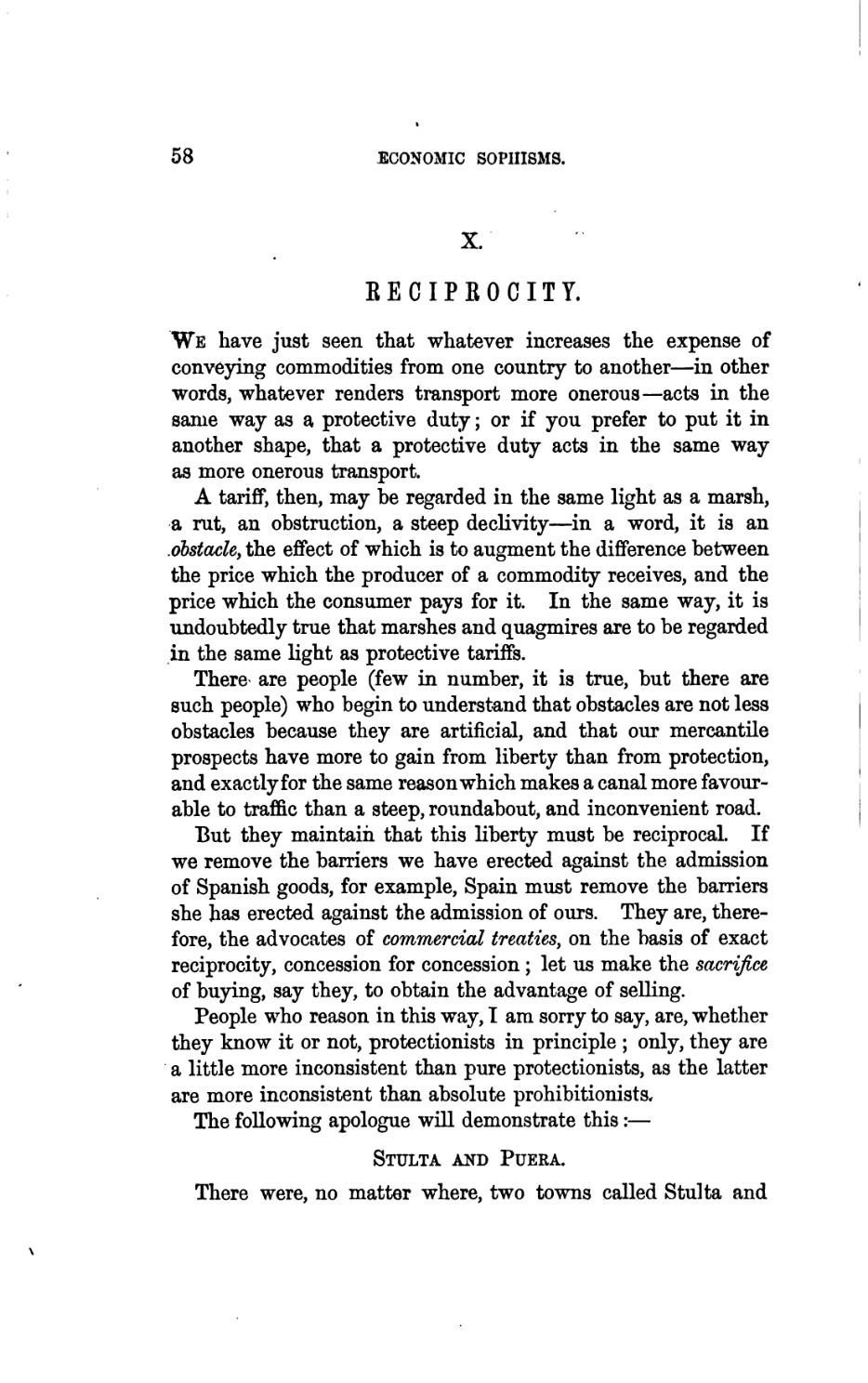X.
RECIPROCITY.
We have just seen that whatever increases the expense of conveying commodities from one country to another—in other words, whatever renders transport more onerous—acts in the same way as a protective duty; or if you prefer to put it in another shape, that a protective duty acts in the same way as more onerous transport.
A tariff, then, may be regarded in the same light as a marsh, a rut, an obstruction, a steep declivity—in a word, it is an obstacle, the effect of which is to augment the difference between the price which the producer of a commodity receives, and the price which the consumer pays for it. In the same way, it is undoubtedly true that marshes and quagmires are to be regarded in the same light as protective tariffs.
There are people (few in number, it is true, but there are such people) who begin to understand that obstacles are not less obstacles because they are artificial, and that our mercantile prospects have more to gain from liberty than from protection, and exactly for the same reason which makes a canal more favourable to traffic than a steep, roundabout, and inconvenient road.
But they maintain that this liberty must be reciprocal. If we remove the barriers we have erected against the admission of Spanish goods, for example, Spain must remove the barriers she has erected against the admission of ours. They are, therefore, the advocates of commercial treaties, on the basis of exact reciprocity, concession for concession; let us make the sacrifice of buying, say they, to obtain the advantage of selling.
People who reason in this way, I am sorry to say, are, whether they know it or not, protectionists in principle; only, they are a little more inconsistent than pure protectionists, as the latter are more inconsistent than absolute prohibitionists.
The following apologue will demonstrate this:—
Stulta and Puera.
There were, no matter where, two towns called Stulta and
